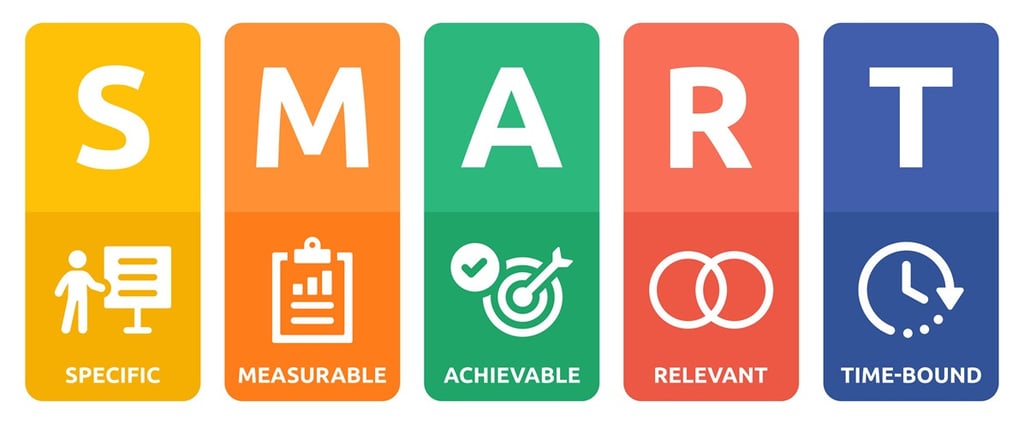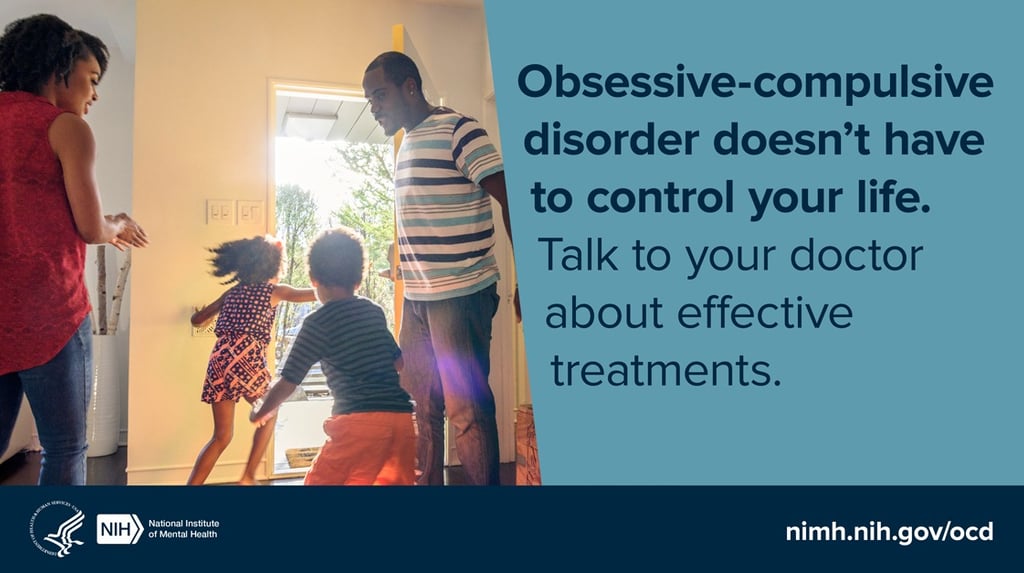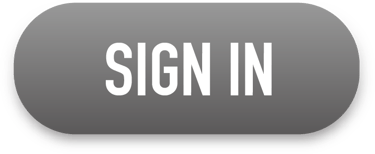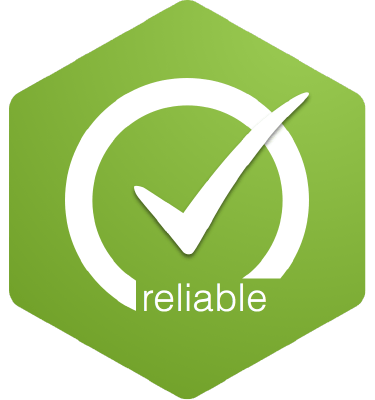Navigating Life’s Intrusive Thoughts and Behaviors
At the Joy of Life Clinic, we understand that life is full of challenges. OCD is one such challenge.
It's crucial to challenge and clarify some common misunderstandings about Obsessive-Compulsive Disorder (OCD). Far from the comedic portrayal often seen in media, OCD is a serious mental health condition—it's not about being quirky or overly tidy. For example, while someone might joke about their "OCD" when they organize their desk, true OCD is an ongoing struggle with intense, distressing thoughts and the compulsion to perform rituals that can disrupt daily life. It's not simply worrying about germs occasionally; it's a persistent, often debilitating concern that can dominate a person's thinking and actions.
So, when intrusive thoughts and repetitive behaviors take over, it can signal an underlying condition like OCD, which can impact your ability to lead a balanced and fulfilling life. Our dedicated team is here to guide you through the complexities of OCD, offering comprehensive evaluation and treatment services tailored to meet your unique needs and help you regain control of your life.
Obsessive-Compulsive Disorder (OCD) v. Obsessive-Compulsive Personality Disorder (OCPD)
There are many misconceptions and confusion about OCD and OCPD. Understanding their differences and similarities is crucial for recognizing symptoms and ensuring accurate diagnoses and treatments. OCD involves unwanted, intrusive thoughts and repetitive behaviors driven by anxiety, while OCPD is characterized by a chronic preoccupation with orderliness, perfectionism, and control.
At the Joy of Life Clinic, we take great care in distinguishing between these conditions to provide the most effective care. By learning about these distinctions, you'll gain deeper insight into each disorder's unique challenges and management strategies. Dive into our full article to unravel the complexities of OCD and OCPD and discover why accurate understanding is the key to effective treatment and support.
These differences and similarities are described in more detail here.
Types of Obsessive-Compulsive Disorder (OCD)
OCD manifests in various forms, each with its own unique set of obsessions and compulsions. Here are some of the most common types of OCD, along with examples to illustrate each type.
Contamination OCD
Checking OCD
Symmetry and Ordering OCD
Intrusive Thoughts OCD
Hoarding OCD
Harm OCD
Scrupulosity OCD
Relationship OCD
Counting and Repeating OCD
These OCD types are described in more detail here.
What OCD evaluation and treatment means
A Path to Clarity: Our services are designed to accurately diagnose and effectively treat OCD, providing you with the clarity and understanding you need to navigate the condition.
Tailored Support: From personalized treatment plans to ongoing support, we are committed to helping you manage the symptoms of OCD in a way that suits your individual life circumstances.
Recognizing the signs: OCD symptoms
Obsessive Thoughts: Experiencing persistent, unwanted thoughts, images, or urges that cause significant anxiety and distress.
Compulsive Behaviors: Engaging in repetitive behaviors or mental acts aimed at reducing anxiety or preventing a feared event, often feeling compelled to perform these actions even if they interfere with daily life.
Excessive Doubts: Constantly doubting everyday actions and decisions, leading to repeated checking or reassurance-seeking.
Perfectionism: An overwhelming need for things to be "just right," leading to time-consuming rituals and routines.
The road to stability: Our OCD evaluation and treatment process
Comprehensive Assessment: We start with a detailed evaluation, including medical history, symptom assessment, and sometimes speaking with family members to understand the full picture.
Personalized Treatment Strategies: Depending on your needs, treatment may include cognitive-behavioral therapy (CBT), particularly exposure and response prevention (ERP), medication management, and coping strategies for symptom management.
Continuous Support: Our team offers ongoing monitoring and adjustment of treatment plans to ensure the best possible outcomes for you.
Unlock your understanding of obsessive thoughts, memories, movements, actions, and a variety of pathological fears—download the CDC's Obsessive-Compulsive Disorder (OCD) brochure to navigate your highs and lows with knowledge.
Knowing when to seek help
Impact on Daily Life: If intrusive thoughts and compulsive behaviors are interfering with your job, relationships, or daily activities, it’s time to seek professional help.
Safety Concerns: Obsessive thoughts or compulsive behaviors that lead to distress or interfere with daily functioning are clear indicators that immediate treatment is needed.
Struggle with Stability: Difficulty in maintaining a stable routine despite previous attempts at management suggests the need for specialized intervention.
Our Aims and Objectives


Achieve Stability: Helping you reach a state of emotional and psychological stability is our primary goal.
Enhance Quality of Life: We aim to improve your overall quality of life, enabling you to enjoy lasting relationships, pursue your goals, and engage fully in your interests.
Empowerment Through Education: Educating you about OCD is key to empowering you to manage your condition effectively.
Our SMART Goals Defined
Our goals are Specific (tailored to your needs), Measurable (with clear benchmarks for progress), Achievable (realistic and manageable), Relevant (aligned with your personal mental health goals), and Time-bound (with scheduled reviews to assess progress).
You didn’t come this far to stop.
Believe you can, and you're halfway there.
Theodore Roosevelt
The benefits of our OCD evaluation and treatment program
Expertise and Experience: Our team specializes in OCD treatment, offering you expertise and experience that can make a significant difference in your treatment outcome.
Individualized Care: We believe in personalized care that respects your individual needs, preferences, and life circumstances.
Holistic Approach: Beyond medication, we emphasize a holistic approach that includes cognitive-behavioral therapy, lifestyle modifications, and coping strategies to address all aspects of OCD.
Begin your journey to a balance today
Embarking on a journey with OCD can feel daunting, but you don’t have to navigate it alone. Our clinic is dedicated to providing you with the support, expertise, and compassion you need to manage OCD and live a balanced, fulfilling life. With our comprehensive evaluation and treatment services, we are committed to walking alongside you every step of the way. Reach out to us today to start your journey to stability, understanding, and renewed hope.
Reach out to us today to start your journey to stability, understanding, and renewed hope.

Psychiatric evaluation and management
Other psychiatric and mental health reports.
Substance Abuse
We also provide these administrative services
Here're addiction problems we treat
Other nutrition and weight management services.
And we provide nutrition and weight management services to make your well-being even more complete
Don't let life's challenges define you—or your loved one—we are here to help you overcome and thrive!
Here're psychosocial and psychosomatic issues we treat
We operate under the laws and regulations of the State of Maryland as a Maryland outpatient clinic.

Home | About Us | Our Services | Blog | Terms & Conditions | Privacy | Telehealth | Forms & Resources | Appointments | Log In | Site Map | Contact Us
BY APPOINTMENT ONLY | NO WALK-IN
BEST WAY TO CONTACT US
Sign In to your account or Fill out the Contact Form or Appointment Form
or
Send us an Email at admin@jolclinic.com
Tel: (410) 231-3118 | Fax: (410) 262-6911
PATIENT RECORDS
To request your patient records, please sign in or go to the patient records information page.
Copyright © 2024 by the Joy of Life Clinic LLC.
4900 Belair Road
Baltimore MD 21206














